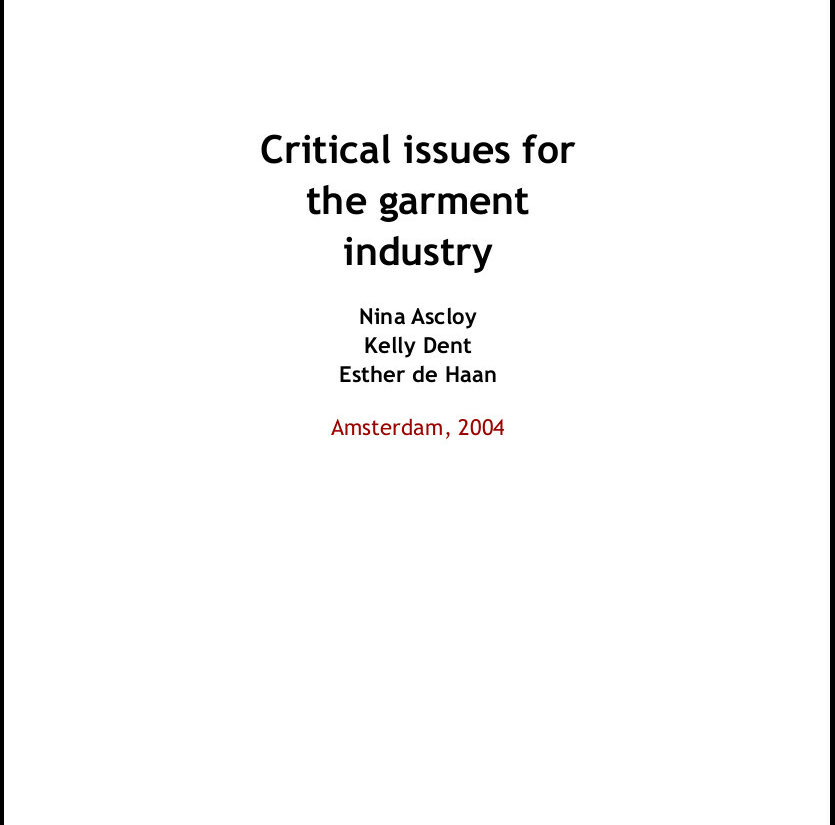
Critical Issues in the garment Industry
Published on:
In 2003 and the first half of 2004, SOMO conducted a sector study on the garment industry. The study described trends and ‘critical issues’ in the sector from the perspective of poverty eradication and sustainable development. The trends and critical issues were identified through discussions with organisations and trade unions working on garments and textiles. The study aimed to give insights and background information for groups working on improving the situation in the garment industry and to provide arguments for civil society organisations to feed the debate on trade & investment and corporate accountability.
Do you need more information?
-

Esther de Haan
Senior Researcher
Publication
Published on:
Related news
-

-
Chain of consequences Published on:
 Joshua RosenzweigPosted in category:Publication
Joshua RosenzweigPosted in category:Publication Joshua Rosenzweig
Joshua Rosenzweig
-




